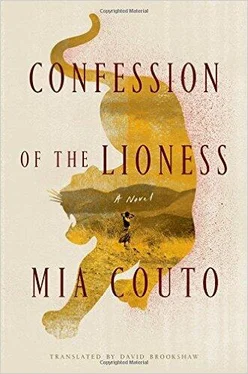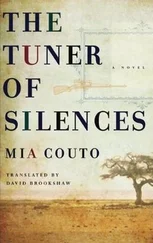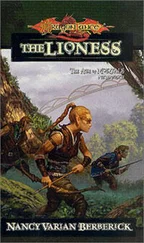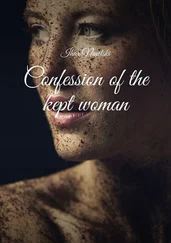We’ve arrived at night. Some of them think we are vashilo.
Who?
Vashilo , people of the night. We’re the only ones visiting villages at this hour.
Then the administrator issues an order in a loud voice:
Let them by! We’ve come to save you, we’ve brought with us someone to kill the lions.
The blind man bows respectfully and once again leans on my arm before concluding:
There’s no dying, there’s no killing. You’ve all come to die here in our abode.
I look around me. Two nights ago, a young woman was killed here. Before her, some twenty others were eaten by the creatures of the wild. Not far away, in the middle of the long grass, there might still be blood-soaked tracks, the indelible relics of unspeakable crimes. I think of the pain and the terror of these people. I think of the helplessness of this village, so far from the world and from God. Kulumani was more of an orphan than I.
Night has fallen — there are no more shadows in the world.
Mariamar’s Version: THREE. An Unreadable Memory
Every morning the gazelle wakes up knowing that it has to run more swiftly than the lion or it will be killed. Every morning the lion awakens knowing that it has to run faster than the gazelle or it will die of hunger. It doesn’t matter whether you’re a lion or a gazelle: When the Sun rises, you’d better start running.
— AFRICAN PROVERB
Last night, when the strangers arrived in Kulumani, I didn’t make a point of watching their reception in front of the administration building. I could have escaped my confinement for a few moments. But I didn’t even bother. For years, my reason for living had been the dream of seeing Archie Bullseye again. Now there he was, just a few steps away, and I remained distant and withdrawn, peering out at the crowd milling around the visiting delegation. They were like vultures. They were feeding on leftovers. What was left of ourselves. And that’s what I told my mother: They’re like vultures . And birds of prey, according to local wisdom, don’t lose their sight even after they’ve died.
Hanifa Assulua’s authoritarian voice brought me down to earth:
Stop sleeping in the shelter of your eyelashes, Mariamar! Go and throttle a chicken.
A huge feast is being prepared to welcome the visitors. We women will remain in the shadows. We wash, sweep, cook, but none of us will sit down at the table. My mother and I know what we have to do, almost without exchanging a word. My job is to go and catch, kill, and pluck a chicken from our henhouse. As it evades me in a noisy, headlong rush, I hear footsteps behind me, as if someone were joining the chase. I stop running and, with bated breath, my eyes sweep the ground, searching anxiously. I can’t see anyone, and an anguished sigh escapes my breast:
Is that you, sister?
Eventually I realize I’m alone, sitting on the steps up to the chicken coop, where the chickens spend the night safe from the animals that prey on them.
Somewhere, so near here, Archie Bullseye is staying. And here am I, in the empty yard, plucking the chicken between my knees. The feathers flutter away, carried on the gentle breeze. Suddenly I glimpse Silência, in silhouette against the light, gathering up the floating feathers in her hands. She cups her hands so that nothing can slip away between her fingers and presents me with this soft, downy offering. I accept the gift and hear her familiar voice:
See here, sister: This is my heart. The lions didn’t take it. You know whom you should give it to.
I notice blood running down my arms, my capulana , my legs. Surely it’s the blood of the chicken, that’s what it looks like, but giddiness stops me from seeing properly. An uncontrollable rage bursts from my breast, a volcanic eruption. Then I hear my mother’s voice coming from the house:
Come on, Mariamar, haven’t you killed the chicken yet? Or are you plucking shadows as usual?
I try to answer, but words fail me. All of a sudden I’ve lost the power of speech, and my chest is convulsed by no more than a hoarse croak. Alarmed, I jump to my feet, I run my hands down my neck, across my mouth and face. I scream for help but can only emit a cavernous roar. And it’s at that moment that I get the awaited sensation: a sandy scraping across the roof of my mouth, as if I’d suddenly been fitted with the tongue of a cat. Hanifa Assulua appears at the door, hands on hips, expectantly:
Having another fit, Mariamar?
Mother’s appearance scares Silência. I hear her steps receding quickly, hurrying away while the anxious sound of clucking makes me certain that the chickens also felt her presence. They hadn’t realized that one of them lay lifeless on my lap. But they recognized the furtive movement of our dead visitor. If it’s true that I’m mad, then I share my madness with the birds.
My mother comes nearer, curious. Slowly, she draws her hands up to her face as if seeking help. Then, a few feet away, she stops, horrified:
What have you done to the chicken? Didn’t you use the knife, girl?
Mother turns her back, disconcerted, and makes for the shelter of the house. I look at the chicken, torn to pieces, spread out across the ground. That’s when I see a vulture land at my feet.
* * *
At that moment, I recall an episode from the past: When the priests withdrew from Kulumani at the height of the war, there was no one to look after the aviary at the mission. The chickens were abandoned in their coops, which began to fall apart. Little by little, the birds became wild, scratching around persistently in the open ground and only returning to the henhouses at night. The chicken coops gradually disintegrated, and the old wooden boards disappeared, eaten away by termites. This was a warning: The border between order and chaos was being erased. The primordial savanna was coming to reclaim what had been stolen from it.
And that’s what happened: The chickens were devoured, one at a time, by the vultures. The birds of prey occupied the space previously reserved for domestic fowl, and made themselves so much at home that they lost all fear of us. Half a dozen of them eventually obeyed Grandfather Adjiru’s call, and he, as a reward, would toss them a few chunks of fat.
One time, dinner was pompously announced in our house.
It’s chicken today, what are we celebrating?
We were suspicious of the size of the roasted bird. Only I had the courage to express my doubts:
Are we eating vulture?
And what if we are? my father retorted. Have you never heard it said that we hunters eat the eyes of vultures so as to gain their pinpoint vision?
I never found out what I ate. But the truth is that ever since that meal, I never again got a good night’s sleep. Nightmares tore me from my bed and I would awaken with unwanted cravings, a greed that stole away my very being. The manner in which such hunger took possession of me was not human. To tell the truth, I didn’t just feel hunger. I was hunger from head to foot, and my mouth watered viscous saliva.
It’s early morning and you’re still eating the leftovers from dinner? What sort of hunger is this? my grandfather, ever an early riser, asked, bewildered.
I was taken to Palma for some tests at the hospital. It could be diabetes , the nurse ventured. The suspicion was groundless. None of the tests revealed any illness and I returned to Kulumani without any relief from the mysterious fits.
* * *
In the early morning, my grandfather continued to pass me on the veranda while I was scratching around among the remains of dinner, picking out chicken bones from the manioc flour. Adjiru took advantage of the darkness to exercise his other activity: that of carving masks. In accordance with ancestral precepts, this was a secret task, and no one could suspect that the masks were fashioned by his hands. These carvings invariably portrayed women: The goddesses we once were didn’t want to be forgotten. The hands of men uttered that which their mouths dared not speak.
Читать дальше












